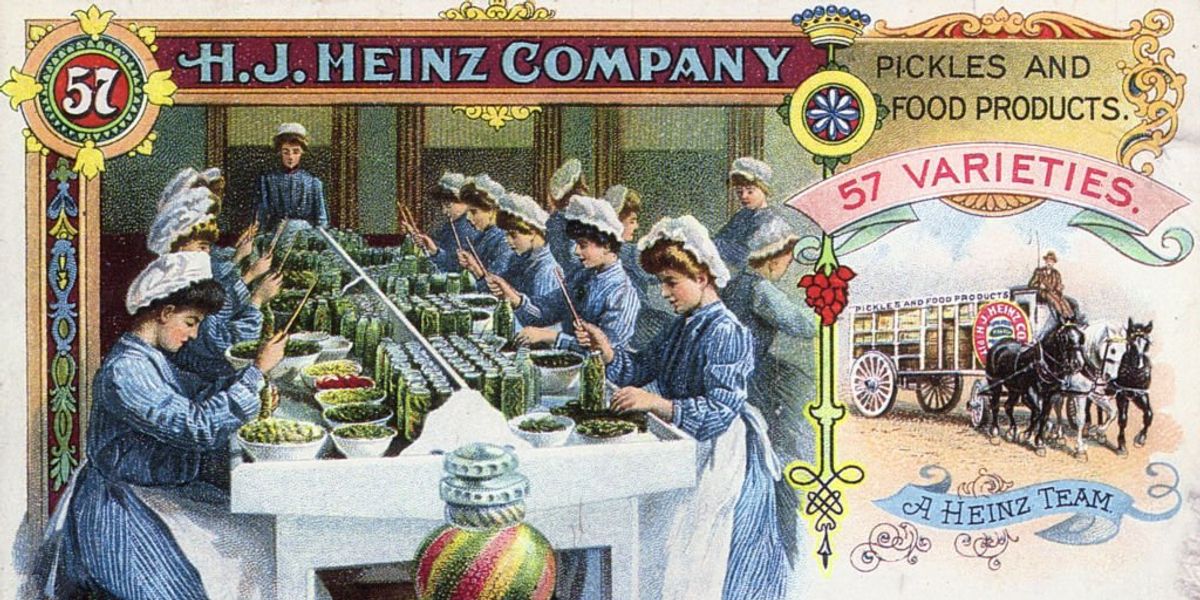It is wise to be cynical about corporate do-gooding these days; the bigger the rainbow flag, the more likely it covers an oil spill. But 150 years ago, it was different. Nobody cared if you employed 4-year-olds, or put cocaine in your health tonic, or let the occasional human finger slip into your potted chicken.
It was in this environment that Henry J. Heinz began to institute the worker and consumer safeguards that we take for granted today. When Heinz started out in 1869, the packaged food industry was just beginning. Operating with no oversight or regulations, producers often used dangerous “preservatives” or deceptive additives (cutting cinnamon with brick dust, for example). The standard colored glass containers served to conceal many flaws until it was too late.
Heinz opted to use clear glass in his packaging; he later developed the iconic 8-sided ketchup bottle to allow consumers to examine the product from multiple angles. While this transparency aligned with Heinz’s deep Christian beliefs, it also anticipated the organic craze a century later. Heinz’s credo, “protect the consumer by owning the product all the way from the soil to the table,” would not look out of place on a jar of artisanal preserved lemons purchased at a Bucks County farmer’s market.
As Heinz went from small horseradish producer to condiment kingpin, he also made sure to treat his employees very well, offering such then-unheard-of amenities as a cafeteria, a gym, a library, and free medical care. While this benevolence was just part of being a good person for Heinz, it also served the fervent capitalist in him, heading off the labor unrest that plagued other companies at the time.
Heinz also put his factory’s immaculate working conditions to use as a marketing tool, inventing the factory tour and stressing what such cleanliness indicated about the purity of his products. Here again, doing the right thing was good for business. Heinz reasoned that widespread public mistrust of packaged foods would be more expensive in the long run than putting quality control measures into place. His support was crucial to the passage of the Pure Food and Drug Act in 1906.
